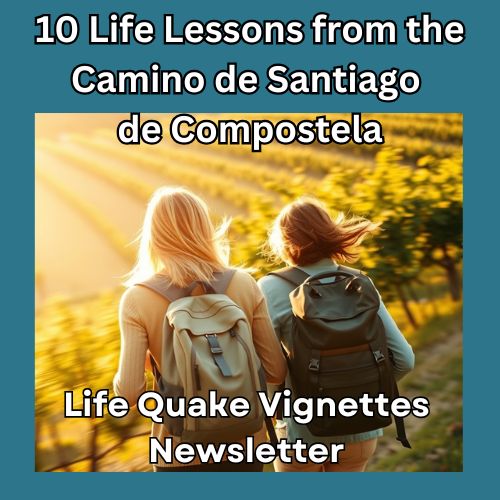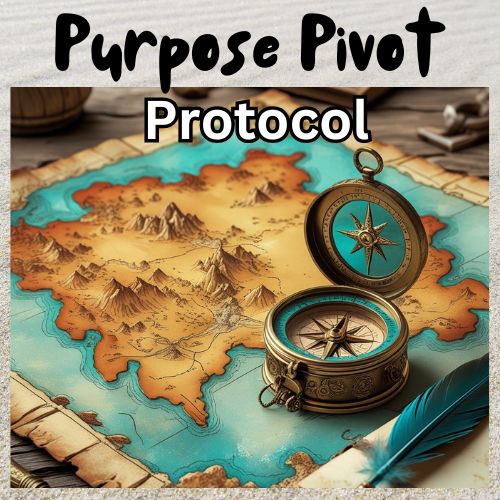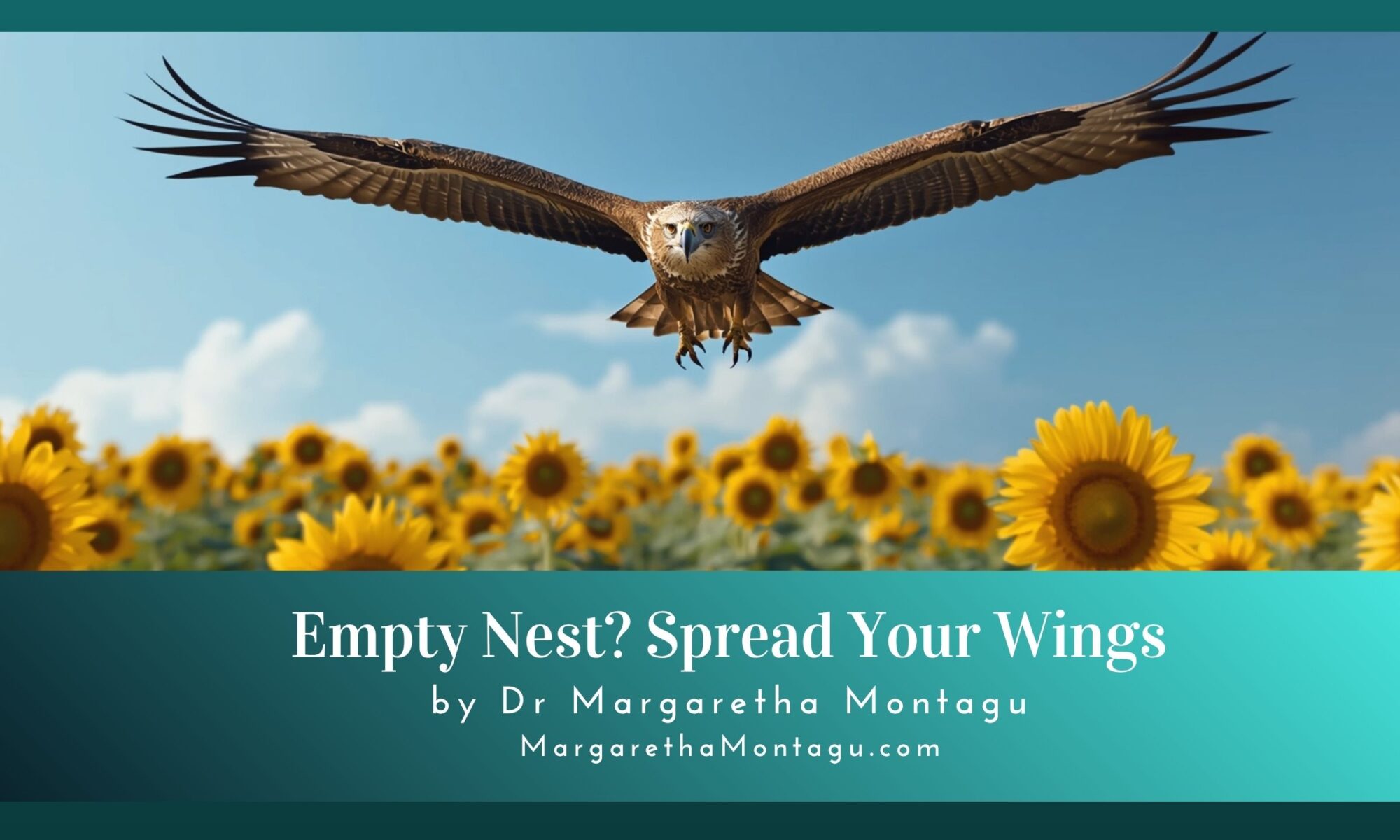A Guide to Rediscovering Yourself When the Kids Leave Home
The Sharp Overview: What You’re About to Read
So the last child has packed their dubiously laundered clothes, grabbed their childhood teddy bear (the one they swore they’d outgrown), and driven off into their independent future. You stand in the doorway, waving like the Queen at a garden party, smiling bravely. Then you close the door, turn around, and face a house that suddenly echoes with one terrifying question: “Who on earth am I without my children to define me?”
Empty nests hit high-achieving executives, entrepreneurs, or professionals who have been expertly juggling boardroom presentations and parent-teacher conferences differently. You’ve spent decades being brilliant at everything—except perhaps preparing for this moment. This article explores why successful people often struggle most with empty nest syndrome, how this disorientation can become your greatest transformation yet, and what to do when your identity seems to have left home along with your children.
Spoiler alert: This isn’t the end of your story.
Five Key Takeaways for the Disoriented Empty Nester
- Identity confusion is proportional to success elsewhere. The more competent you’ve been at managing multiple roles, the more disoriented you’ll feel when one of those primary roles disappears. This isn’t weakness—it’s the natural result of having invested heavily in something meaningful.
- Empty nest syndrome deserves serious attention. Just because others might say “at least you have healthy children who can leave home” doesn’t diminish your genuine grief and confusion. Successful people often minimise their own emotional needs—don’t fall into that trap.
- This transition is a forced sabbatical from who you’ve been. Use it. Your children’s departure creates space for the parts of yourself you’ve postponed, forgotten, or not yet discovered. The question isn’t “who am I?” but rather “who might I become?”
- Community impact begins with personal transformation. When you navigate this transition authentically, you model emotional intelligence for everyone around you—your colleagues, your still-nested friends, and paradoxically, your adult children who are watching how you handle change.
- Grief and excitement can coexist. You can simultaneously mourn the end of active parenting while feeling genuinely thrilled about your newfound freedom. Both emotions are valid. Both are true. Learning to hold contradictions is advanced emotional work.
Introduction: The Identity Crisis Nobody Warns You About
You’ve survived sleepless nights with colicky infants, navigated teenage rebellion with the diplomatic skills of a UN negotiator, and somehow managed to close million-dollar deals while mentally calculating whether you’d bought enough milk for breakfast. You’ve been extraordinary at being everything to everyone.
Then one Tuesday morning, you wake up and realise nobody needs you to sign a permission slip, drive them anywhere, or give an opinion about their life choices. The silence is deafening.
Here’s what’s particularly cruel for high-achievers: you’ve probably handled every other major life transition with strategic planning and executed action items. You approached parenthood like a project, researched childcare options like you were preparing a market analysis, and scheduled your children’s activities with the precision of a military campaign. But somehow, nobody mentioned that when the project ends, the project manager would face an existential crisis.
This isn’t about missing your children (though you do). It’s about suddenly confronting the question you’ve been too busy to ask for two decades: without the role of “parent” front and centre, who are you really?
As someone who has spent twenty years as a physician specializing in stress management, fifteen years hosting walking retreats on the Camino de Santiago, and countless hours in storytelling circles listening to accomplished people unravel this very question, I can tell you this: the empty nest identity crisis is real, it’s profound, and it might just be the gift you didn’t know you needed.
Margaret’s Story: The Day the House Fell Silent
For two decades, Margaret’s life had been a symphony of chaos—bickering, blenders, and shouting boys. Now, there was only silence.
Everyone had warned her about empty nest syndrome. “Oh, it’s hard at first,” they said, “but then you rediscover yourself.” Margaret had no idea how she was supposed to do that.
On Monday, determined to be proactive, she made a list titled Operation Reinvention. It included:
- Start yoga.
- Learn French.
- Write a memoir.
By Wednesday, she had pulled a hamstring, told Duolingo’s passive-aggressive owl to “mind its own damn business,” and realised her memoir consisted mostly of snack distribution adventures.
By the second week, she started talking to the furniture. “Well, aren’t you looking particularly supportive today,” she said to the couch, sinking into it with a family-sized bag of crisps and a nostalgic episode of Gilmore Girls.
Then came The Great Closet Purge. Every empty-nester’s rite of passage. She approached her children’s rooms like an archaeologist excavating the remains of a lost civilisation—complete with strange artefacts: a fossilised sandwich, a prom corsage(?!), seventeen mismatched socks, and a mysterious note that read “Don’t tell Mom.” (Tell Mom what, exactly?)
When that didn’t help, she joined a local book club. Big mistake. It wasn’t really a book club—it was a covert wine syndicate with occasional literary references. Sheila was apparently divorcing Gary (who no one liked anyway), and Greg’s banana bread had become a political issue. The only book anyone could recall was Eat, Pray, Pour Another Merlot.
Her next bright idea was to reconnect with her husband. Poor Roger. He’d been quietly minding his own business, enjoying the rare luxury of watching football without interruptions. Suddenly, Margaret was there. All the time. Suggesting “fun couple activities.”
“Let’s take a pottery class!” she announced one evening.
Roger, who had survived 25 years of PTA meetings, instantly recognised danger. “How about darts?” he countered.
They compromised on a cooking class, which ended with Margaret flambéing her sleeve and Roger bravely eating burnt risotto.
The turning point came one afternoon while she was scrolling through social media, nursing her third cup of coffee and her growing sense of irrelevance. She stumbled across a post from her daughter: “Miss you, Mom. Thanks for always believing in me.”
Margaret blinked. Then smiled. Because maybe—just maybe—the silence wasn’t empty after all. Maybe it was space. Space to breathe, to rediscover, to reinvent. An invitation to remember who she was before she was everyone’s breakfast chef, chauffeur, therapist, and human GPS.
That night, she lit a candle, poured another glass of the “special occasion” wine.
“To me,” she said, raising her glass. “To rediscovery. To reinvention. And to never having to label another lunchbox again.”
She opened her journal and wrote:
“Dear Me, congratulations—you survived child-rearing, adolescence, and gluten-free meal planning. If you can survive this, you can survive anything.”
Her words stirred something — a faint memory, like the rustle of wind through cypress trees.
Last spring, Margaret had attended a stress-management retreat on the Camino de Santiago — a gift from a well-meaning colleague who’d told her she needed “soul maintenance.” At the time, she’d rolled her eyes. But something unexpected had happened out there, walking under French skies with strangers who quickly stopped feeling like strangers.
The retreat leader had asked everyone to tell the story of a life transition. Margaret had chosen motherhood. She’d described the fear and fierce love, the exhaustion and joy, the complete identity collapse and rebuild.
The retreat leader had listened quietly, then said, “On the Camino, every ending is also a beginning.”
Corinne hadn’t understood it then. But now, sitting on her support coach, the words returned with startling clarity.
This was her new Camino — not the one lined with vineyards and sunflower fields, but an invisible path stretching ahead through her own uncertainty.
Now, unburdened by curfews and permission slips, was free to discover who she might be next.
Understanding the Empty Nest Identity Crisis
The empty nest phenomenon affects everyone who’s raised children, but high-achieving professionals often experience it with particular intensity. Why? Because you’ve spent decades being exceptional at simultaneous role management. You’ve been the executive and the parent, the entrepreneur and the homework helper, the professional and the person who remembered that Tuesday was violin lesson day.
Your identity has been complex, multi-layered, rich. When one of those layers—arguably the most emotionally significant one—suddenly dissolves, the entire structure feels unstable.
Here’s what research and two decades of clinical experience have taught me: the grief of the empty nest isn’t really about missing your children (though you do). It’s about losing a version of yourself that felt purposeful, needed, and central to someone else’s daily existence.
For successful people, this hits particularly hard because you’re used to being in control. You’ve built careers on your ability to anticipate challenges, create solutions, and execute plans. But your children’s departure isn’t something you can strategy-meeting your way through. It’s a fundamental life transition that requires not just adaptation but transformation.
The Broader Impact: How Your Transformation Affects Your World
When you navigate this transition authentically—when you allow yourself to grieve, question, and ultimately reinvent—you create ripples far beyond your own experience.
Your colleagues watch how you handle change. In a work culture that often demands we pretend personal life doesn’t affect professional performance, your honest engagement with this transition models emotional intelligence.
Your community benefits when you redirect parenting energy toward broader engagement. Some of the most effective community leaders, mentors, and change-makers are people who’ve moved through the empty nest transition and discovered new ways to channel their nurturing abilities.
Your adult children observe how you handle this ending. They’re learning from you—again—about resilience, about allowing yourself to be imperfect, about the courage it takes to ask “who am I now?” and wait for an answer that feels true.
And perhaps most importantly, you give yourself permission to evolve.
Take your time. Then spread your wings.
In a society that often treats ageing as a process of diminishment, you can model something different: ageing as freedom, as the beginning of chapters you couldn’t have written before.
Three Powerful Writing Prompts for Empty Nesters
Prompt 1: The Letter to Your Younger Self
Write a letter to yourself on the day your first child was born. Tell that younger you what you’ve learned, what you’d do differently, and what you’d do exactly the same. Then write what you wish a younger version of yourself could tell you now about who you were before you became a parent. What did that person love? Dream about? What got lost in the busy years that might be worth recovering?
Prompt 2: The Calendar Exercise
Draw or describe your ideal week five years from now. Don’t include any “should” activities—nothing you think you ought to do. Include only things that make you feel alive, curious, or engaged. Who are you spending time with? What are you learning? What are you creating? Let yourself imagine without the constraints of your current reality.
Prompt 3: The Epitaph Question
This sounds morbid but it’s remarkably clarifying: What do you want people to say about you after you’re gone? When your children speak about you to their own children, what qualities do you hope they remember? Now ask yourself: are you living in a way that develops those qualities? If not, what needs to change?
Further Reading: Five Unconventional Books for Empty Nesters
1. “The Artist’s Way” by Julia Cameron
Yes, it’s technically about creative recovery, but I recommend this for empty nesters because it addresses the fundamental question of identity reconstruction. Cameron’s twelve-week program helps you rediscover buried creative impulses and desires—exactly what you need when a major life role ends. The morning pages practice is particularly valuable for processing the complex emotions of this transition.
2. “The Second Mountain” by David Brooks
Brooks writes about the difference between first-mountain goals (career, success, achievement) and second-mountain purposes (relationship, community, depth). For accomplished empty nesters who’ve conquered the first mountain, this book offers a framework for thinking about what comes next that’s more meaningful than simply staying busy.
3. “Women Who Run With the Wolves” by Clarissa Pinkola Estés
This exploration of wild woman archetypes through storytelling helps midlife women reconnect with parts of themselves that got domesticated or suppressed during the intensive parenting years. Estés’ work reminds us that we contain multitudes, and that the fierce, creative, instinctual self doesn’t disappear—it just waits to be reclaimed.
4. “The Gifts of Imperfection” by Brené Brown
Brown’s work on vulnerability and wholehearted living speaks directly to the empty nest experience. Her research shows that people who navigate transitions successfully are those who can acknowledge grief while remaining open to joy. For perfectionistic high-achievers, this book offers permission to be messy in your process.
5. “Transitions: Making Sense of Life’s Changes” by William Bridges
This classic distinguishes between change (external) and transition (internal). Bridges identifies three phases: ending, neutral zone, and new beginning. Understanding that you’re in the neutral zone—that uncomfortable space between identities—can help you stop trying to rush through it and instead use it as the transformative space it’s meant to be.
P.S. My own book, “Embracing Change – in 10 Minutes a Day,” offers practical, brief exercises for navigating any major life transition. It’s designed specifically for busy people who need tools that fit into real life.
Guest Testimonials: Real Women, Real Transformations
From a Camino Walking Retreat Guest:
“I came to Dr. Montagu’s Camino retreat six months after my youngest left for university, feeling completely unmoored. I’d been a pediatric surgeon for twenty-five years AND an intensely involved mother—I thought I knew who I was. The empty nest revealed I’d been using both roles to avoid asking deeper questions about myself.
Walking the Camino, I finally let myself feel the grief I’d been intellectualising. The daily mindfulness practices helped me stay present with uncomfortable emotions instead of strategising around them. But what truly transformed me was the storytelling circle. Hearing other accomplished women voice the same fears and questions I’d thought were my unique failure made me realise this transition was normal, not a personal weakness.
Six months later, I’ve started painting again—something I loved in my twenties but abandoned as ‘impractical.’ I’ve also begun mentoring young female physicians, channelling my nurturing energy in new directions. The empty nest didn’t diminish me. It gave me back to myself.”
— Patricia H., London
From a Storytelling Circle Member:
“Dr. Montagu’s storytelling circles literally saved me from a midlife crisis that would have involved expensive mistakes. I’d been contemplating radical changes—quitting my job, moving abroad, anything to fill the void my children’s departure had created.
In the circle, with Dr. Montagu’s horses grazing nearby (something about their calm presence made it easier to be vulnerable), I told the story of my children leaving. But as I spoke, I realized I was really telling the story of how I’d lost myself gradually over twenty years, and how I’d blamed them for a disappearance I’d orchestrated.
The other women in the circle asked me questions I hadn’t asked myself: What brought me joy before children? When did I last feel creative? What would I do if nobody else’s opinion mattered? Through their witnessing—not advice-giving, just authentic listening—I found my own answers.
I didn’t quit my job or move abroad. Instead, I renegotiated my role to create more flexibility, started a book club focused on books I actually want to read (not ‘important’ books), and reconnected with friends I’d neglected. The storytelling circle taught me that transformation doesn’t require drama. Sometimes it just requires honesty.”
— Margaret L., Manchester
Five Razor-Sharp FAQs
Q1: Is it normal to feel relieved when my children leave, even though I also feel sad?
Absolutely, unequivocally normal. Emotions aren’t mutually exclusive. You can simultaneously grieve the end of intensive parenting, feel relieved about reclaiming time and energy, worry about your children’s wellbeing, and feel excited about your newfound freedom. Humans are capable of holding contradictory feelings. The problem comes when we think we should feel only one “appropriate” emotion and then judge ourselves for feeling everything else. Relief doesn’t mean you didn’t love parenting. Sadness doesn’t mean you’re not ready for this transition. Both are true. Let them coexist.
Q2: My identity has been so wrapped up in being a parent that I don’t remember who I was before. How do I start?
Start with curiosity rather than pressure. You’re not trying to excavate a fossilised earlier self—you’re discovering who you’re becoming now, which includes all the growth and wisdom you’ve gained through parenting. Try this: notice what catches your attention during an ordinary day. What makes you pause? What do you find yourself thinking about in the shower? What topics make you want to learn more? These small moments of genuine interest are breadcrumbs leading you toward your current authentic self, not your previous one.
Q3: I feel guilty about focusing on myself when I should be happy my children are thriving. What’s wrong with me?
Nothing is wrong with you. This is another example of unnecessary emotional policing. Your children thriving and you struggling with identity transition are not incompatible facts. You can be genuinely happy for their independence while grieving what you’ve lost. Here’s a reframe: by doing the work of rediscovering yourself, you’re modelling for your adult children that life is a series of transformations, not a single destination. You’re teaching them that it’s possible to honour endings while embracing new beginnings. That’s a gift.
Q4: My partner/spouse and I seem to be handling this differently, and it’s creating tension. Is this normal?
Completely normal, and actually an opportunity for deeper connection if you approach it with curiosity rather than judgment. Different attachment styles, different parenting intensities, and different needs for purpose all mean you’ll navigate this transition differently. The key is communication without criticism. Instead of “you don’t understand what I’m going through,” try “I’m struggling with this transition more than I expected. Can we talk about what we’re each experiencing?” This might be a good time for couples counselling or a retreat that helps you renegotiate your relationship now that it’s not structured around coordinating children’s schedules.
Q5: How long does this identity crisis last? When will I feel normal again?
I understand the desire for a timeline, but transitions don’t work that way. Some people move through the disorientation in months; others take years. What I can tell you is this: the discomfort lessens when you stop trying to rush through it and instead let yourself inhabit it fully. The fastest way through is acknowledging where you are. “Normal” won’t feel like it used to feel because you’re not who you used to be—and that’s exactly the point. You’re not trying to return to a previous normal; you’re creating a new one. The question isn’t “when will this end?” but rather “what am I learning here that I couldn’t have learned any other way?”
Conclusion: It’s a Doorway, Not a Dead End
You’re standing in a doorway. Behind you is the country of intensive parenting—a place you know intimately, with all its demands, joys, terrors, and profound meaning. Ahead of you is territory you haven’t mapped yet. Of course you’re disoriented. Of course you’re asking “who am I now?”
But here’s what I’ve learned from twenty years as a physician specialising in stress management, fifteen years hosting walking retreats, and countless conversations in storytelling circles: this question is not a crisis to be solved. It’s an invitation to be answered.
The empty nest doesn’t diminish you. It offers you back to yourself—older, wiser, carrying the depth that only comes from loving something beyond yourself so intensely for so long. You’re not losing your identity; you’re shedding an outdated version to make room for who you’re becoming.
Your children don’t need you to remain the person you were when they needed you most. They need you to show them what it looks like to evolve, to ask hard questions, to reinvent yourself while honouring what came before.
This is not the end of your story’s best chapters.
So stand in the doorway a little longer. Let yourself feel the grief and the anticipation. Ask the question “who am I now?” and then—this is crucial—wait for an answer that comes from your authentic self rather than from other people’s expectations or your own anxiety.
The second half of your life is waiting. And it might just be extraordinary.
A Special Invitation: The Camino, the Horses, and the Stories That Heal
If this article has resonated with you—if you’re standing in that doorway between identities and you need space to discover what comes next—I’d like to invite you to something that’s transformed empty nesters for fifteen years: my stress-busting life transition retreat in the breathtaking southwest of France.
This isn’t your typical wellness retreat with prescribed schedules and forced enthusiasm. This is about walking the Camino de Santiago at your own pace, with daily mindfulness and meditation practices specifically designed for stress management. But what makes this retreat unique are the storytelling circles, held in the presence of my Friesian and Falabella horses—creatures whose calm, non-judgmental presence has a remarkable way of making vulnerability feel safe.
In these circles, accomplished women like you tell the stories they haven’t been able to tell anywhere else. Stories about who they were before they became mothers. Stories about who they’re afraid they might not be anymore. Stories about the futures they’re beginning to imagine. The horses graze nearby, occasionally coming close as if to witness your truth-telling. There’s something about their presence that makes authentic conversation not just possible but inevitable.
The walking itself becomes meditative—a physical metaphor for the journey you’re on internally. Each day, you move forward, sometimes easily, sometimes with effort. You rest when you need to. You discover what pace feels right for your body, not someone else’s expectations. And slowly, step by step, you begin to hear yourself again beneath all the noise of who you thought you should be.
The retreat is limited to small groups because transformation happens in authentic connection, not performance. You’ll eat remarkable food (this is France, after all), sleep in comfortable accommodations, and have plenty of solitude if you need it. But you’ll also have the rare gift of being witnessed by women who understand exactly what you’re navigating because they’re navigating it too.
Past guests describe it as “the reset I didn’t know I desperately needed,” “a week that changed how I see the rest of my life,” and “the first time I felt like myself in years.” With more than forty testimonials on my website from people whose lives have been genuinely transformed, I can promise you this: you won’t leave this retreat the same person who arrived. You’ll leave clearer, more grounded, and more excited about who you’re becoming.
The empty nest can be an ending. Or it can be the beginning of your most authentic chapter yet.










10 Powerful Life Lessons Learned While Walking the Camino de Santiago – a free guide filled with 10 not just “quaint anecdotes” or Instagram-worthy moments (though there are plenty of those) but real transformations from real people who walked the same insight-giving trail you might want to walk one day – Subscribe to my monthly newsletter to Download the Guide

The Purpose Pivot Protocol – drawing inspiration from the Camino de Santiago, this transformative course guides you through a proven framework to recalibrate your authentic purpose and create a meaningful and fulfilling next act. Get immediate access
Dr. Margaretha Montagu (MBChB) is an NLP Master and Medical Hypnotherapist with twenty years of experience in stress management. She has spent fifteen years hosting transformative walking retreats on the Camino de Santiago and has authored eight non-fiction books addressing divorce, loss, unexpected illness, and coping with life’s major crises. Her work combines medical expertise with deep understanding of the human spirit’s capacity for resilience and reinvention.
Resources
Khatir MA, Modanloo M, Dadgari A, Yeganeh LT, Khoddam H. Empty nest syndrome: A concept analysis. J Educ Health Promot. 2024 Jul 29;13:269. PMID: 39309983; PMCID: PMC11414866. This article provides a comprehensive definition of empty nest syndrome (ENS), outlining its stages (mourning to adaptation) and proposing avenues for clinical models and measurement.
Ahmadi Khatir M, Modanloo M, Dadgari A, Khoddam H, Yeganeh LT. Developing and identifying the psychometric properties of Empty Nest Syndrome Scale. BMC Psychol. 2025 Jul 7;13(1):743. Introduces the Miniature Empty Nest Syndrome (ENS) Scale, integrating psychological, neurobiological, and cultural aspects of ENS. Discusses the need for standardized assessment tools and diverse interventions.
Kabiri M, Namdari K, Abedi A. Psychological Resilience Level after Cognitive-Behaviour Therapy in Old People with Empty Nest Syndrome – A single-case Experimental Design. Clin Gerontol. 2023 May-Jun;46(3):446-456. Epub 2022 Aug 11. PMID: 35950313.
Mangla, J. & Sahai, A. (2024). Influence of Empty Nest Syndrome on the Quality of Life of Middle Aged Parents. International Journal of Indian Psychology, 12(2), 3597-3602.

